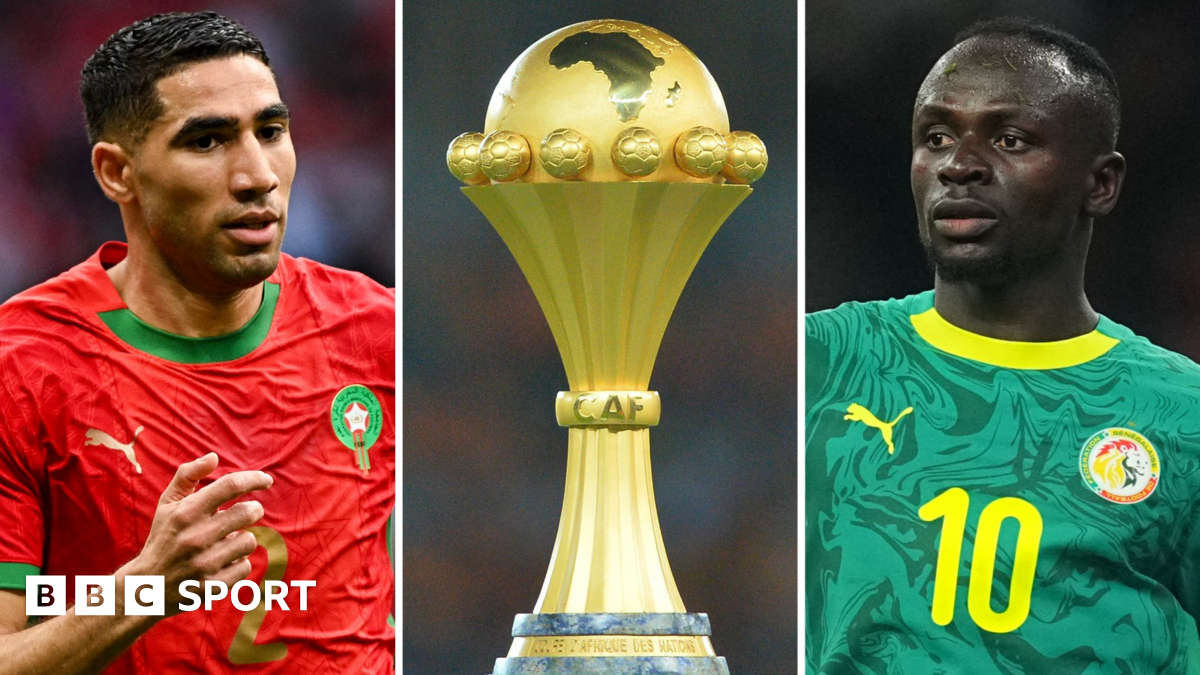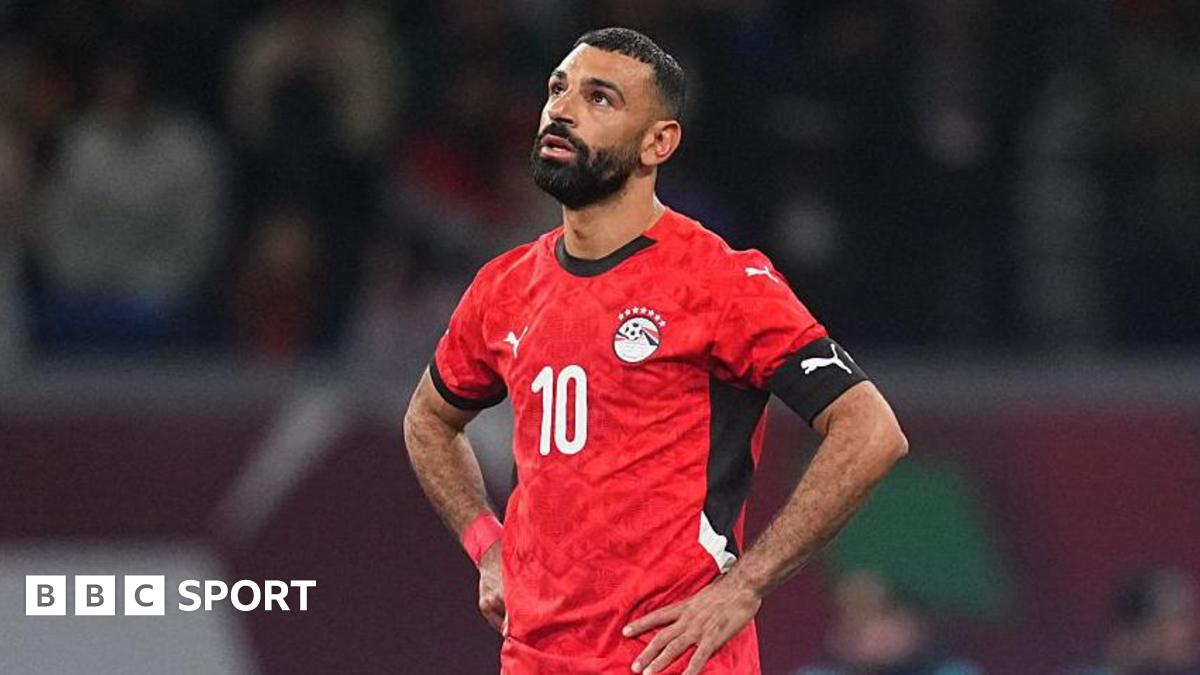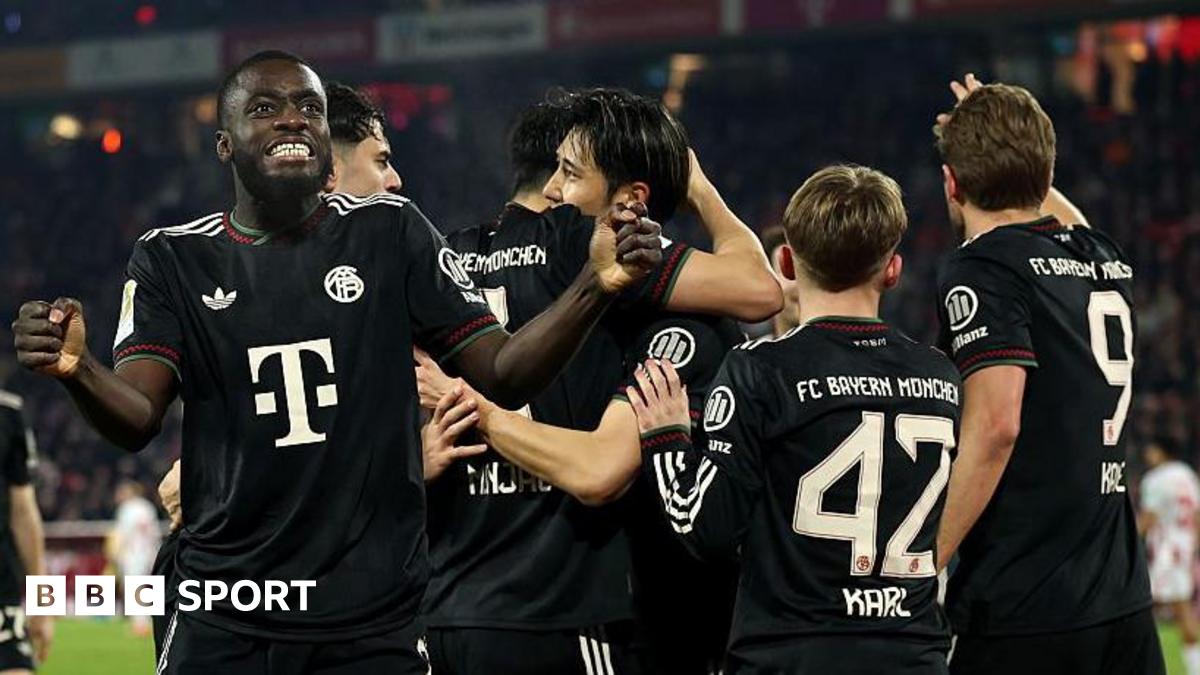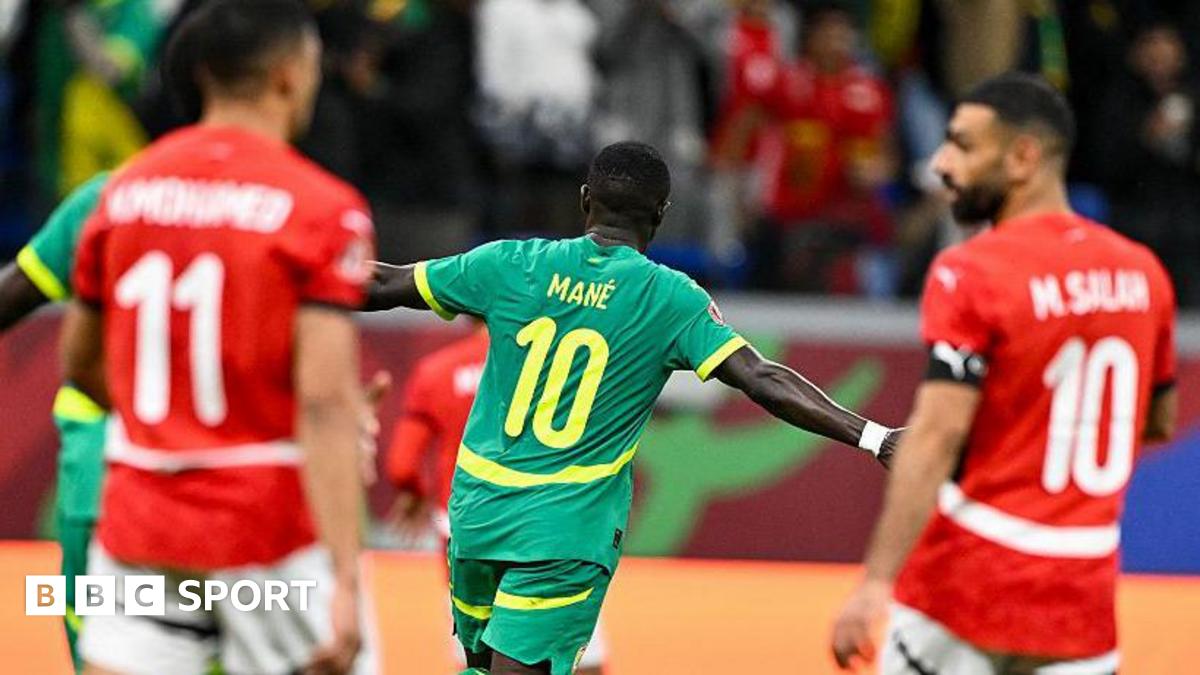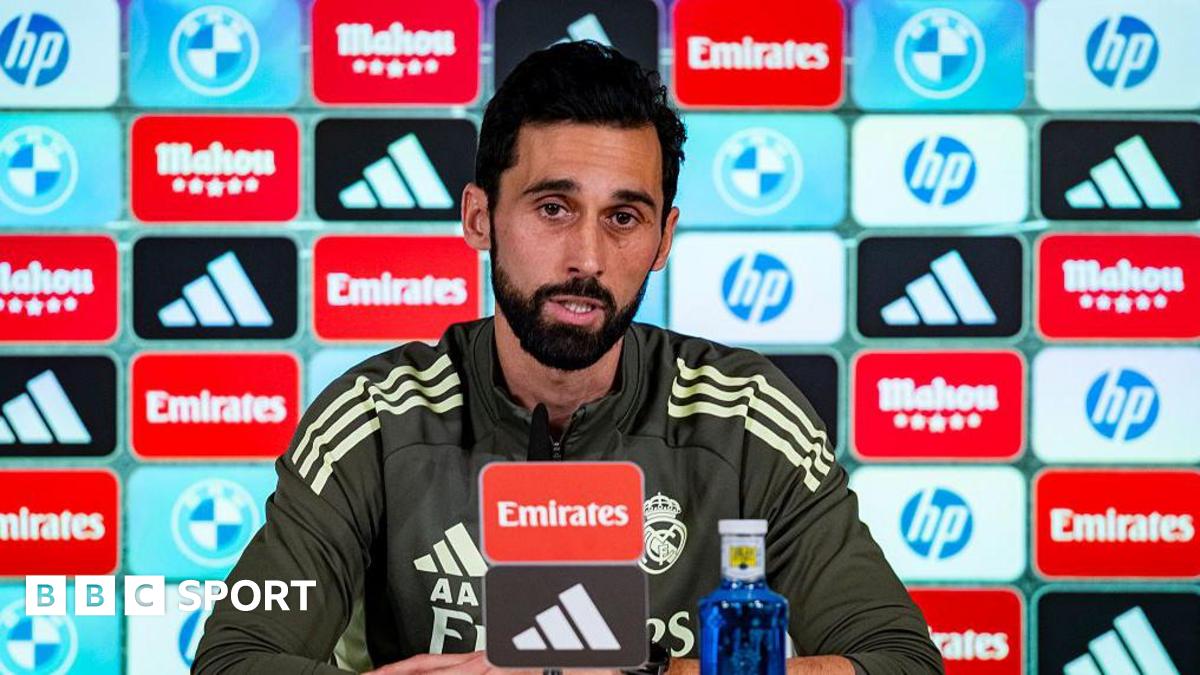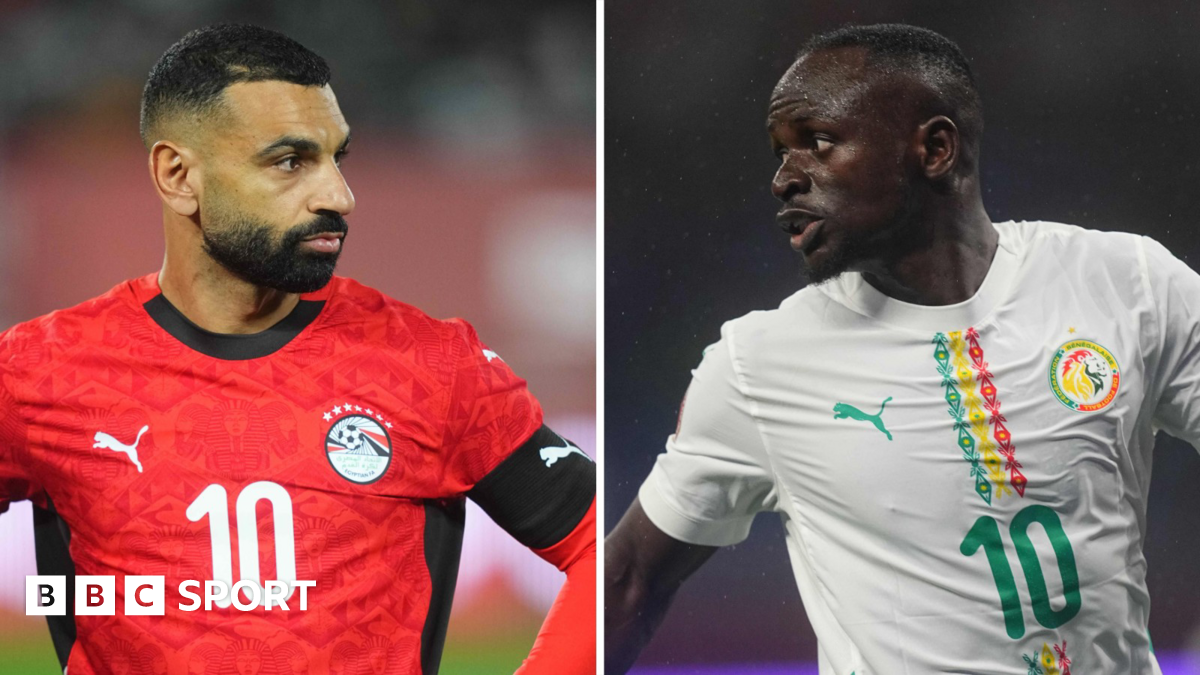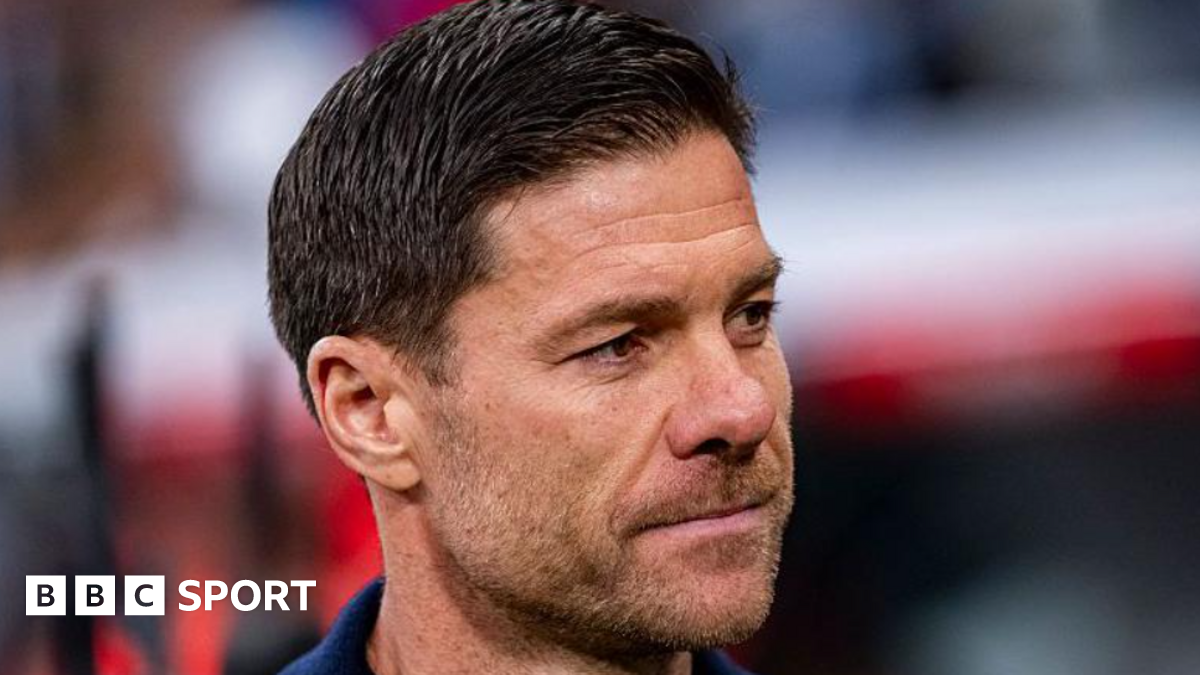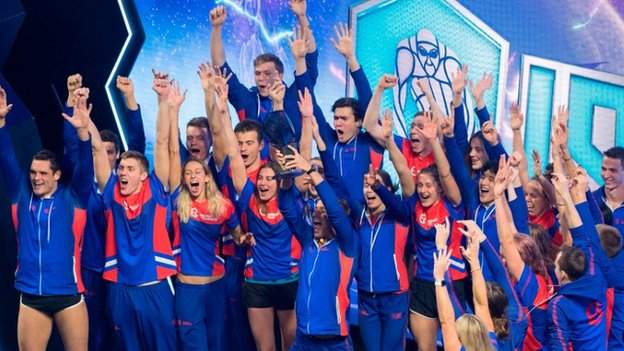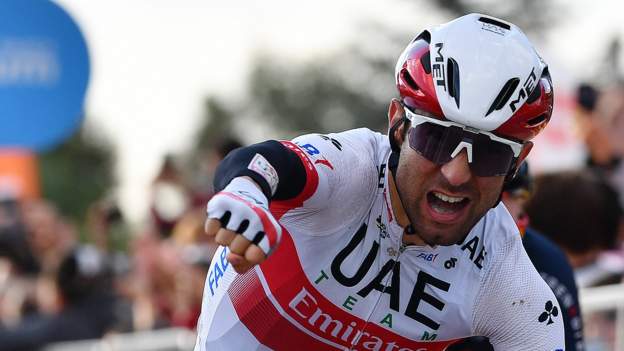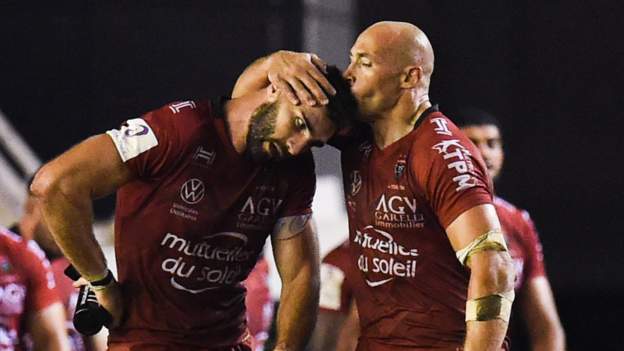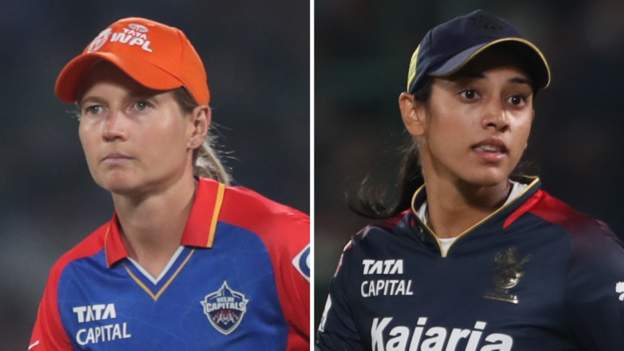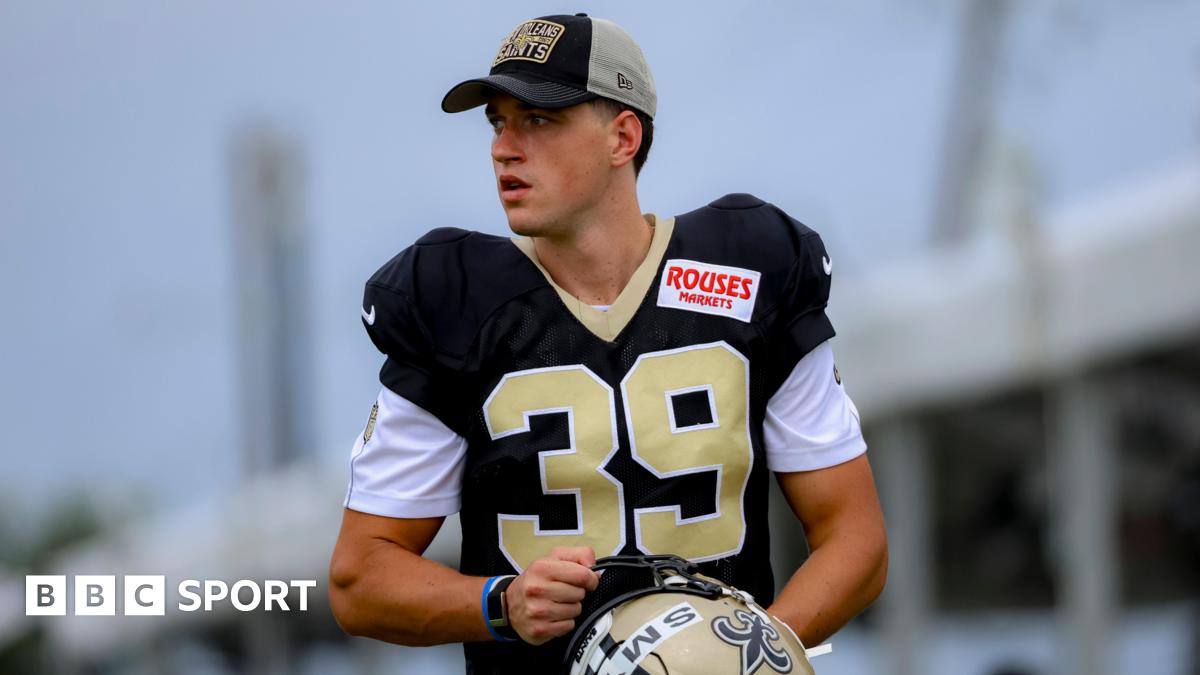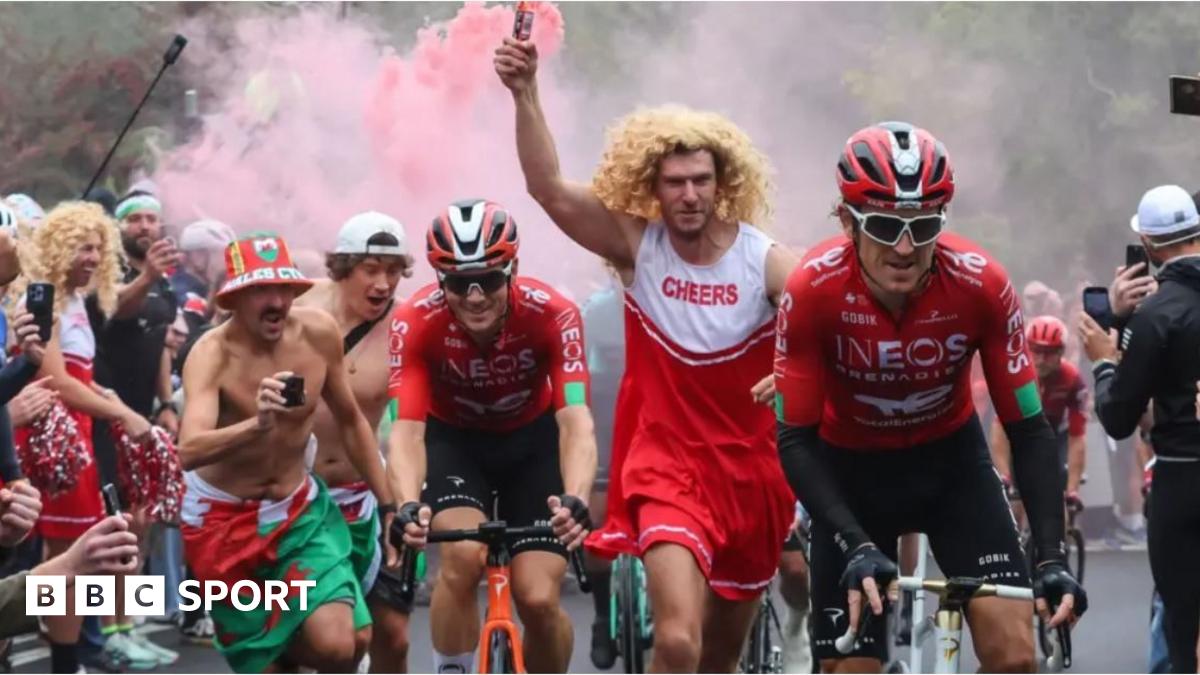| Venue: Budapest Dates: Friday, 16 October to Sunday, 22 November |
| Coverage: All matches featuring London Roar, the semi-finals and finals will be streamed live on the BBC Sport website, app and via the BBC iPlayer. |
More than 300 of the world’s best swimmers return to competitive racing in the pool this week, for the first time since the Covid-19 pandemic decimated the sporting calendar and led to the postponement of the Tokyo Olympic Games.
The International Swimming League (ISL) dazzled during its 2019 debut, dragging the sport into the 21st century – albeit nearly two decades late – with a series of head-to-head showdowns in Europe and the United States culminating in a spectacular Grand Final in Las Vegas.
Organisers envisaged a “bigger and bolder” ISL in 2020 but as coronavirus spread, plans were scaled back and season two will take place entirely in a ‘Budapest bubble’ between 16 October and 22 November.
Olympic champion Adam Peaty is one of 36 Britons involved, while Caeleb Dressel, Sarah Sjostrom, Chad le Clos and Katinka Hosszu are among the other global stars signed up by billionaire ISL owner Konstantin Grigorishin.
Grigorishin insists the ISL has taken “every possible precaution” to make the event as safe as possible, but that was not enough to reassure Swimming Australia, with all but one of their athletes withdrawing from the event.
How does the ISL work?
Unlike traditional events, in which swimmers compete for their nation or themselves, the ISL features 10 franchises, who are each allowed squads of up to 32 – 16 men and 16 women.
They score points for their team through results during a total of 32 individual and five relay events across a two-day match featuring four teams, with extra points available in the ‘skins’ race-off events.
In those ‘skins’, eight swimmers go head-to-head in 50m races which take place every three minutes. Half of the field is eliminated after each of the stages – leading to what is usually a dramatic conclusion to each match.
Each of the teams will compete four times during the event’s 10 qualifying matches, which begin on 16 October and run to 10 November.
The top eight at the end of the initial stage will qualify for the semi-finals, and the top two from each of those fixtures will contest a four-strong Grand Final.
Who are the franchises?
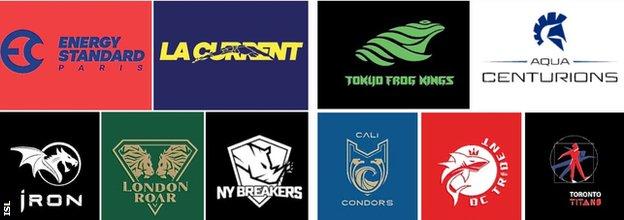
Who are the swimmers to watch?
Caeleb Dressel (Cali Condors)
Arguably the most talked-about swimmer on the planet right now and often referred to as the ‘new Michael Phelps’ because of his dominance across multiple events. The 24-year-old is a stronger sprinter than his former USA team-mate, though, and is perfectly suited to ISL racing because it takes place in 25m pools and benefits those who have strong starts, turns and underwater strokes.
Sarah Sjostrom (Energy Standard)
The 27-year-old Swedish superstar was named MVP (most valuable player) in season one. The eight-time world champion is a heavy points scorer across freestyle and butterfly events.
Adam Peaty (London Roar)
One of the biggest names in the sport, the 25-year-old Briton is a breaststroke specialist and could be one of those who benefits significantly from new rules which allow medley relay winners to choose the stroke used for ‘skins’ races.
Katinka Hosszu (Team Iron)
Often described as the ‘Iron Lady’ because of her dominance of multiple events during self-selected relentless race schedules. The Hungarian three-time Olympic champion, 31, is the leader of the team which takes inspiration from her nickname and is based in her home pool.
Who are the Britons racing for?
London Roar (15): Freya Anderson, Elliot Clogg, Kathleen Dawson, Tom Dean, Luke Greenbank, James Guy, Holly Hibbott, Anna Hopkin, Emily Large, Scott McLay, Siobhan-Marie O’Connor, Adam Peaty, Duncan Scott, Harriet West, Aimee Willmott.
New York Breakers (eight): Chloe Golding, Joe Litchfield, Molly Renshaw, Matt Richards, Sarah Vasey, Jacob Whittle, James Wilby, Abbie Wood.
Energy Standard (five): Imogen Clarke, Georgia Davies, Lucy Hope, Max Litchfield, Ben Proud.
Toronto Titans (three): Candice Hall, Jay Lelliot, Jocelyn Ulyett.
Aqua Centurions (two): Tian Bruce, Kathryn Greenslade.
Team Iron (two): Isabella Hindley, Ross Murdoch.
Cali Condors (one): Mark Szaranek.
How are the swimmers being kept safe?
All competitors were tested for Covid-19 in their home country before departure and were required to produce a negative result before travelling and again upon arrival.
Dutch former Olympic champion Femke Heemskerk fell foul of that rule – she tested positive before her flight and will now not travel to Budapest for a least a couple of weeks, and only after a negative result.
For those who arrived as planned, following two days in isolation and further negative Covid tests, swimmers formed ‘bubbles’ with their team-mates and began training in facilities specifically assigned to their franchise.
They will be tested at least once every five days during the competition and are not allowed to mix with swimmers from other teams in order to minimise the risk of a significant outbreak were there to be a positive test.
To protect those involved in the ISL, as well as the public in Budapest, all swimmers and coaches are based on Margaret Island, which is in the middle of the Danube river running through the city and only accessible by bridge or boat.
There will also be no spectators in the Duna Arena as an added precaution.
Who are the favourites?
With big-hitters such as Sjostrom, Le Clos, Florent Manaudou, Ben Proud and five-time world champion Emily Seebohm, Energy Standard will begin as favourites to retain their crown.
With their full Australian contingent, London Roar would have been strong contenders, but they and the Cali Condors have been heavily impacted by withdrawals.
The Americans have retained Dressel and Lily King, though, and the team who were third in season one will – like London Roar – be expected to again be among the top finishers.
Team Iron struggled at times in the first season, but the retention of double Olympic freestyle champion Ranomi Kromowidjojo from the Netherlands and the recruitment of Spanish multi-eventer Mireia Belmonte could help propel them into the knockout rounds in 2020.
But the introduction of several new rules – including swimmers losing points if they do not achieve set times – and the addition of the Toronto Titans and Tokyo Frog Kings teams – means it is likely to be a highly unpredictable season.




